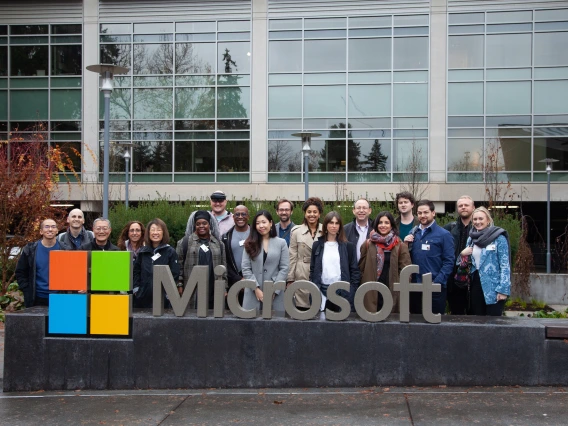
The University of Arizona’s Center for Digital Humanities, in partnership with The Colored Girls Museum in Philadelphia, is being awarded a $175,000 grant to create high-resolution, three-dimensional scans of art and cultural artifacts created by members of the community.
The John S. and James L. Knight Foundation grant is part of a program to support immersive technology and the arts, including the use of virtual and augmented reality to strengthen audience engagement. The project was one of five that were selected through an open call for ideas launched earlier this year that received more than 500 submissions.
Bryan Carter, director of the Center for Digital Humanities and associate professor of Africana Studies, says the project will produce a series of real and virtual exhibits available to people around the world, leveraging the power of immersive, interactive experiences to engage visitors with the life experiences of women and girls of the African diaspora.
The project has grown out of a proposal funded by a Faculty Seed Grant from the university’s Office for Research, Discovery & Innovation. With the initial support, the Center for Digital Humanities purchased a high-resolution, three-dimensional scanner to begin work with the museum.
“As a result of that RDI award, the CDH was placed in position to apply for this Knight Foundation grant to bring this project to life,” Carter says.
The Knight Foundation says the experimental projects selected will “explore new ways to engage audiences through immersive experiences. In addition to funding from Knight, the organizations will receive optional coaching from Microsoft’s mixed reality team, access to Microsoft and partner technology, and the opportunity to be featured across Microsoft marketing channels.
“Across the board, arts institutions are hungry to improve their use of technology to connect with audiences. But limited know-how and resources are inhibiting experimentation and success,” said Chris Barr, director for arts and technology at Knight Foundation. “Our hope is for these new initiatives to inspire more innovation in the field and provide models for other organizations seeking to engage people with the arts through tech.”
Headquartered in Philadelphia’s historic Germantown neighborhood, The Colored Girls Museum is a memoir museum that honors the stories, experiences, and history of ordinary Colored Girls. Objects in the museum represent the distinctive and meaningful experiences of individuals—their stories, personal histories, and embodied experiences.
The goal for the Center for Digital Humanities is to scan 500 of the museum’s objects, with metadata tagging to assist curation and deepen an audience’s knowledge of the works and the artist’s story.
The museum contacted Carter after hearing about the Center for Digital Humanities’ preservation efforts and outreach mission.
“This is the most well-known community museum that curates works of art from black women,” Carter says. “The whole idea is to preserve that culture, add the stories of the artist and her inspirations in order to inform the world of the struggles and beauty of the black girl. Our goal is to extend voices from the margins.”
The scanning will commence early next year.
Other awardees are the American Museum of Natural History, the Japanese American Museum of San Jose, the Museum of Art and Design at Miami Dade College and the Museum of the Moving Image (MoMI) and Scatter.

